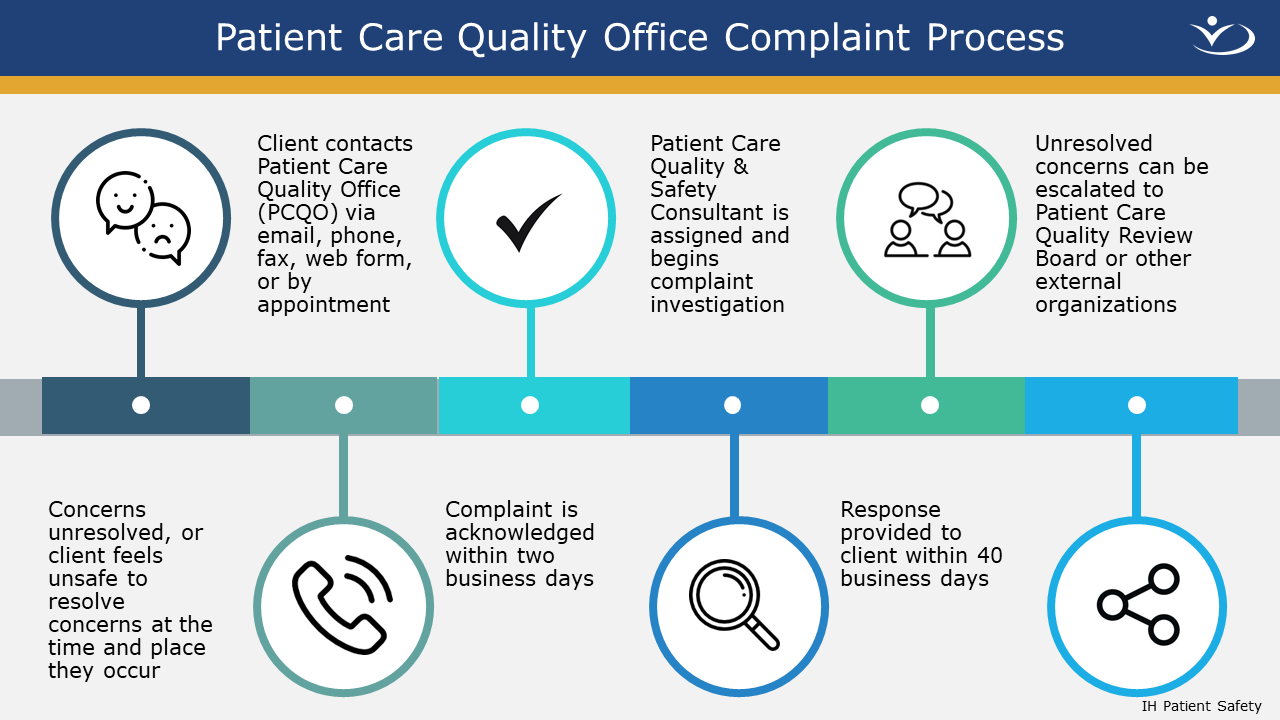Addressing concerns with empathy
Addressing concerns at the time and place they occur offers the best opportunity to rebuild trust and repair relationships with patients.
Medical staff should attempt to address concerns by:
- Acknowledging the patient's perspective while gathering sufficient information to clarify the concern
- Discussing the concern with the appropriate administrative or medical leaders
- Reflecting on the concerns with cultural humility and an awareness of power imbalance, privilege and biases
- Assisting in investigating the concern as necessary
- Communicating the response to the client and answering their questions
- Providing an apology for their experience
- Documenting the investigation, actions taken, and outcomes in the patient's health record
Helpful tips for communicating with patients who have concerns















